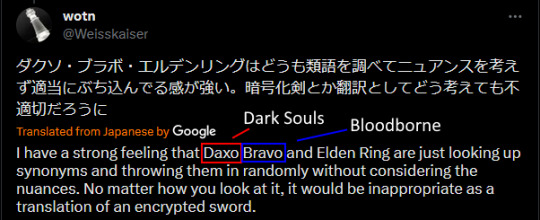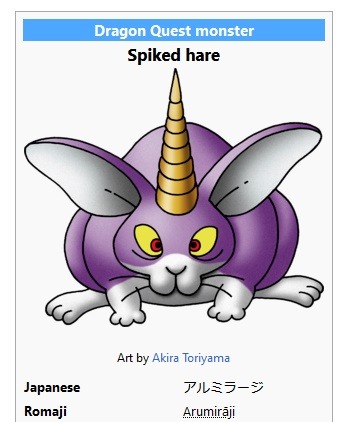#annoyed Jackalope rants
Explore tagged Tumblr posts
Text
I'm getting fucking sick of this argument being presented like it's something new that feminists haven't acknwledged and been aware of FROM DAY FUCKING ONE. God damn. A huge tennant that I learned in feminist teachings is that the patriarchy is also bad for men. That one of the things we need to fight for is how to deprogram men from patriarchal expectations. Was it front and center? No, of course not, because while men are victims of the patriarchy they aren't the main sufferers. But my god if I have to see one more person reblog this like it's some kind of fucking revelation I'm going to scream.
And look, I get it, all groups are different. And different feminists groups have different ideas and exectations and different methods on how to carry out those ideals. But every single feminist group I've encountered in my life has at least acknowledged that the patriarchy is bad for men.
And honestly people of the cis male gender, asking women to come up with ideas on how to help deprogram other men is kind of.... not our job? Because men entrenched in patriarchal ideals aren't going to listen to women, that's kind of the whole point to the patriarchy.
Finally, there needs to be room in feminist spaces for women to scream about how men have hurt them without feeling guilty about hurting the feelings of some man caught in the crossfire. Here's an example. I'm a white woman, but I understand that a POC screaming about how white people are assholes who voted for fascism because they're all racist has a valid point even if I'm annoyed that I've been mistakenly caught in that statement. It's not my job to educate this hypothetical POC that some white people are good, it's my job to tell other white people to stop with the racism AND give that POC space to be angry at the racist structures they find themselves trapped in. This is part and parcel of accepting the burden of your priviledge. (And just so you understand that this really is a 1 to 1, white people are damaged by white supremist ideals. Maybe not as badly as men are damaged by the patriarchy, but the damage is there. Go read Kindred by Octavia Butler and notice how she takes a sweet young white boy and turns him into a monster shaped by the white supremasict society he's in. Is it a major point of the book? No, but it's there.)
So please, the next time you find yourself wondering how feminists can help men deprogram themselves. Or find yourself wondering why feminists don't acknowledge the pain that men feel under the patriarchy, just stop.
I want there to be fewer MRAs. Do you want that too? Do you want to know what helps us get there, from a feminist perspective?
You may not like my answer: acknowledge that sexism can affect men. Recognize that, although the patriarchy generally privileges men, they are also subject to restrictive gender roles that are harmful to them (shunning all things “feminine,” not showing emotions, being protectors/strong, never admitting being victims of SA/IPV, having to “earn” their manhood, etc.).
Give young men a place other than the right-wing manosphere to be heard about the issues they experience. If these grifters are telling them “only we understand how hard it is to be a man, the left hates you for your gender” and they look to the left and see “men claiming they have ‘problems’ are losers who just hate women, all men are trash,” do you think they’re going to be drawn towards or away from feminism?
Before you leave an angry response: no, this does not mean to center men instead of women in feminism, it just means including them at all. No, it is not “coddling” men to treat them with human dignity, you can and should continue to hold them (and every other gender) responsible for unpacking sexist beliefs. No, this does not mean it is every individual woman’s and feminist’s responsibility to prioritize men’s issues, it just means at the least not shutting them down when they do speak up about sexism. No, it is not “not all men-ing” to point out that “men are trash” sentiments hurt the feminist movement rather than helping it. Ask questions before you make accusations on this post, please. I have been abused by men too, I get it, this isn’t easy to hear.
3K notes
·
View notes
Text
DRAGON QUEST'S LOCALIZATION SUCKS, ACTUALLY. PART 1
There's a thread blowing up on Japanese twitter right now about the poor quality of localization. It's the first time I've ever actually seen a japanese perspective on the topic, and it's been extremely gratifying to see a ton people from over there talk about specific translation issues they've seen or learn for the first time that japanese media is often given the short end of the stick here in the USA.




Most of the time over here in the US, criticism of localization gets shouted down as whiny fans who think they know better than the translators. It's been heartening to see that people from japan are also annoyed by it, and its inspired me to write up a whole long-ass rant I've had simmering in the back of my mind for years, so buckle up, long post(s) incoming:
Let's start at the beginning with the first thing that ever caused me to start thinking about localization. This little guy:

If you've played Dragon Quest in the past 2 decades, you probably know this guy by the name "Spiked Hare." Not me though! I got into DQ on the game boy, in the brief window of time where DQ's localization was handled by Nob Ogasawara, the same guy responsible for translating every pokemon game up until Platinum. In the DQ games Nob worked on, he chose to translate this guy's name as "Almiraj." Why the huge difference in translation? I'll get to that in a minute.
The almiraj is an extremely minor enemy in Dragon Quest 3. It's pretty weak, and it's only real defining feature is that it can occasionally cast sleep spells on your party members. It's just one of hundreds of monsters in that game, and aside from it's cute design, it's pretty forgettable. As a weird kid overly obsessed with linguistics though, its name always seemed odd to me. You don't really see words that end with a "J" in english. It stuck out enough that one night, when I was bored, I decided to google "almiraj" to figure out what the name meant. It sent me down a rabbit hole (almiraj hole?) that taught me all sorts of cool shit, and permanently altered the way I looked at localization. The path I tumbled down that night went something like this:
The Dragon Quest almiraj is named after the almiraj, a "real" mythical creature described as a hare with a large horn on its head.
The original inspiration for accounts of the almiraj (as well as the jackalope, wolpertinger, etc.) is likely the Shope papiloma Virus, which causes rabbits to grow weird, horn-like growths on their face and head.
It was described by Zakariya al-Qazwini, an Iranian lawyer, author, and all around knowledgeable guy who lived in the 13th century.
al-Qazwini described it in the Aja'ib al-Makhluqat, a massive cosmographical treatise that attempted to describe basically everything in the known universe at the time. It was so popular in the Islamic world that it was copied and translated into dozens of languages, which meant plenty of copies have survived intact to modern times.
The almiraj was brought into the limelight in modern fantasy when it was introduced in the first edition of Dungeons and Dragons, as a relatively weak and unassuming monster as part of a campaign to expand the game with monster suggestions from fans of the series.
Dungeons and Dragons-style role playing games were brought into the digital world with the release of the first Wizardry game in 1981.
Yuji Horii was a massive fan of Wizardry, which he first discovered as part of a developer exchange program when he visited America in 1983. Three years later, he decided to try and recreate the things he loved from the series for console gamers in Japan, and the the original Dragon Quest was born.
One little name was all it took to open up this entire through-line of history that I had no idea even existed before that night. It's a tapestry of human experiences over 800 years in the making, spanning continents, cultures, languages, and medium. It's probably because I'm the type of person who sits around thinking about stuff too much, but I honestly get a little emotional wondering what al-Qazwini would think if he could see the mythical creatures he described all those years ago as little dudes hopping around inside a computer.
And the thing is the tapestry doesn't end there! Dragon Quest is still pretty niche in the west, but in Japan it's fucking titanic. There's an urban legend that the Japanese government banned Square Enix from releasing Dragon Quest games on a weekday, because so many people would skip work or school that it would impact the economy. (It's not true by the way, but the fact that the rumor exists at all is a testament to how huge the series' influence is over there.) I don't think it would be an overstatement to say that what Lord of the Rings did to modern western fantasy, Dragon Quest did to modern Japanese fantasy. Almost every JRPG, manga, or anime with a fantasy setting has the fingerprints of Dragon Quest on it. Countless other works have been inspired by DQ, and those works will go on to inspire others. A million different threads weaving tapestries back and forth across time and borders, all over the globe. And the almiraj is a part of that! It might just be a single, tiny, white and purple thread, but it's still in there helping to tie things together.
So back to the question I asked earlier: Why is it "Almiraj" in Mr. Ogasawara's translation but "Spiked hare" in the current one? Simple: Nob actually translated the name.
You can see on the DQ wiki that the original japanese name of the monster is "アルミラージ" which is literally just "almiraj" written in katakana:

The current DQ team has instead decided that all monster names should be puns. I'm not against puns or anything. "Spiked hare" for a rabbit with a horn is great! I might even raise my eyebrows and exhale slightly if I read it for the first time. Dragon Quest in general tends to have a lot of goofiness in it, so it's not like puns are out of place or anything. My problem is that, by deciding to replace monster names arbitrarily like this, all the little threads start to come unraveled. You lose the ability to look back down the line and discover all these different connections to history and nature and art that you might not ever learn otherwise. The almiraj isn't the only monster to get this treatment. A huge portion of the monsters in Dragon Quest are taken from mythologies around the world, and many of their names are literally already in English, just written with katakana.
The almiraj sticks out in my mind as a particularly egregious example because of just how much I learned because of the foreign-sounding name, but there's plenty of other name changes that have resulted in straight up confusing, ambiguous, or otherwise stupid outcomes in the current localization.
CONTINUED IN PART 2
25 notes
·
View notes